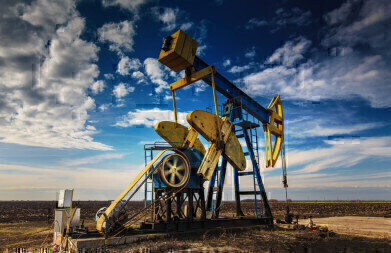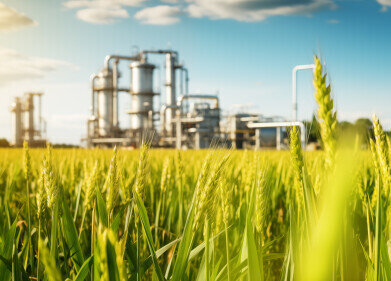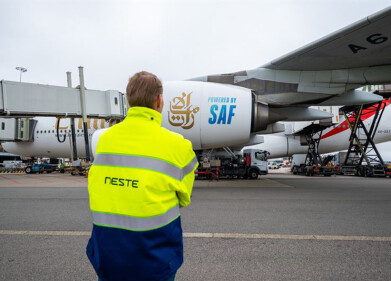Fuel for Thought
Debunking 5 Commonplace Fracking Myths
Nov 25 2014
The process of extracting natural gas from the Earth via hydraulic fracturing (or fracking), has been a controversial topic of debate for years now. And as with all polemic subjects, each side will often attempt to distort the truth to support their own arguments. With such selectivity being applied to the truth, it’s difficult to know who to believe. Here are five commonplace myths about fracking … and the truth.
1) Fracking Is New and Untested
Many concerns around fracking centre on the fact that it is believed to be an untested method of extraction, and as a result, its potential dangers remain unclear and possibly disastrous.
The simple truth is that the first fracked well was drilled back in 1947. In the half decade since then, the technique has been refined and tested heavily, until its widespread use by the United States of America in the 2000s. More than one million wells have been drilled in the US since then and the country has yet to explode or collapse in on itself.
The UK still harbours concerns about deploying fracking on a large scale, despite the best efforts of “Frack Master” Chris Faulkner to allay these fears in this interview: Is Fracking the Way Forward?
2) Fracking Is a “Bridge” Fuel That Will Last for 100 Years
These were more or less the verbatim words of no less a credible source than the US President himself, Barack Obama. He was relying upon the initial estimates of trillions of barrels of potentially-frackable oil beneath the United States. However, more recent predictions have shown these estimates to be grossly exaggerated. For instance, the Monterey shale reserves estimate was cut by 96% earlier this year, since current technological does not make its extraction economically viable.
Equally, viewing fracking as a bridge to renewable fuels has the danger of postponing developing those renewables indefinitely, further causing damage on our environment.
3) Fracking Is Better for the Environment Than Coal Burning
Whilst it is most certainly true that fracking releases less carbon dioxide into the atmosphere than traditional techniques and as a result is far more desirable for complying with the EU restrictions on emissions, this simplistic view tends to overlook its disadvantages.
Fracking has also been found to release methane into the atmosphere, which could potentially be far more damaging for our climate. Exact estimates of how much methane is being released are inconclusive, though it’s certainly a concern. To read more on the differences between the two processes, see the article: Fracking vs Coal - Analysing the Differences.
4) Fracking Fluid Is Composed of Harmful Chemicals
Fracking fluid is made up almost entirely of water. 98.5% consists of water, 1% of sand and only 0.5% of chemicals. Whilst it is of course still undesirable that these chemicals find their way into our water supply, especially when such huge quantities of the fluid are used in fracking processes, there have been few reported cases in the US of water supply contamination.
In the words of former US Environmental Protection Agency administrator Lisa Jackson: “I'm not aware of any proven case where the fracking process itself has affected water.” Though Jackson was speaking in 2011, there have been limited reports of contamination since, either.
5) Fracking Causes Water Taps to Breathe Fire
This is perhaps the most widespread and widely-believed myth regarding fracking due to Josh Fox’s 2010 documentary Gasland, in which he showed fire shooting from taps in houses in areas where fracking was prevalent.
However, extensive studies into the phenomena, along with thorough media interrogation of Fox, revealed that he was aware that such fire-breathing taps existed well before fracking came about, and as such could well be unrelated. Even so, the image endures … as does the myth.
Digital Edition
PIN 25.1 Feb/March
March 2024
In This Edition Safety - The technology behind the ION Science Tiger XT - Safety with ammonia and LOHCs as hydrogen carriers Analytical Instrumentation - Discussion on new tribology te...
View all digital editions
Events
May 03 2024 Seoul, South Korea
May 05 2024 Seville, Spain
May 06 2024 Riyadh, Saudi Arabia
May 06 2024 Houston, Tx, USA
May 06 2024 Houston, Tx, USA


















